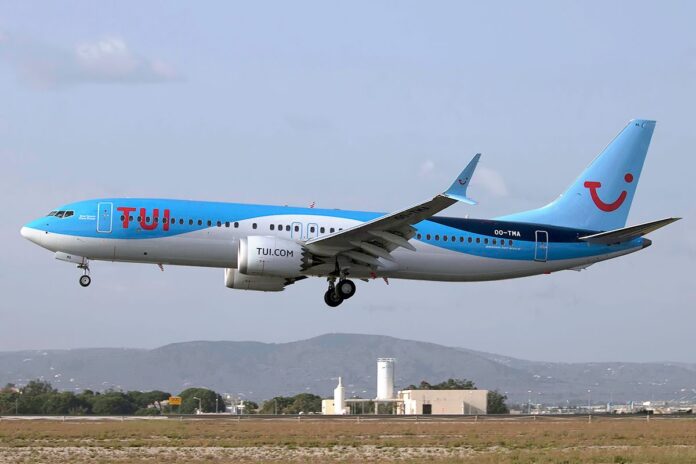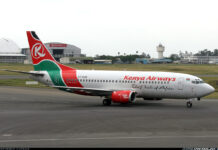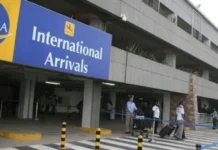Europe’s largest leisure tour operator has renewed efforts to secure permission to operate direct charter flights to Kenya amid tourism-sector pressure and growing frustration within the industry.
The operator, identified as TUI Group, last made a similar request in June 2025 that was declined by Kenyan regulators. Now, fresh applications and proposals signal a renewed push to open routes, particularly between Amsterdam and Mombasa, with the aim of deepening access to Kenya’s coastal resorts and boosting visitor numbers.
The new bid suggests TUI remains committed to Kenya despite previous setbacks. Industry contacts indicate the operator is offering enhanced schedules, stronger seasonal load factors, new hotel partnerships and higher frequency charter services as part of a broader package to secure regulatory green‑light.
The proposal is pitched as timely: tourism revenues have yet to fully recover to pre‑pandemic levels, and the Government is seeking additional inbound capacity to meet rising demand from European holidaymakers.
Tourism stakeholders in Kenya have publicly welcomed TUI’s renewed interest, calling it a critical step toward reversing declining arrivals from major European markets.
The return of charter tourism is viewed as a pathway to lower-cost travel, increased tourist spending, and wider economic gains in coastal counties through increased hotel occupancy, inland travel and safari bookings.
However, regulatory friction remains at the core of the dispute. Kenya Civil Aviation Authority previously rejected TUI’s licence citing unspecified compliance gaps and policy limitations on international charters.
Critics argue that opaque and discretionary licensing procedures discourage investor confidence and risk pushing operators toward more transparent markets. Meanwhile, Cabinet-level tourism planners continue to emphasise the need for transparent criteria in charter routing approvals.
As discussions resume, there is growing political and business momentum to revisit Kenya’s charter licensing policy balancing safety and fair competition with national development goals.
International observers note that TUI’s renewed interest may prompt adjustments to regulatory frameworks, with possible introduction of clearer charter allocation guidelines.
Kenyan aviation insiders suggest that TUI may structure the bid strategically, including codeshare partnerships with Kenya Airways or regional carriers, and integrating packaged holiday experiences that benefit local hotels and transport providers.
They await clarity on whether regulators will now adopt more enabling policies to accommodate revival of charter services.
In summary, the fresh bid underscores both Kenya’s unmet demand for direct European tourist routes and the broader urgency for regulatory reform.
As Kenya aims to reignite post‑COVID tourism growth, the outcome of TUI’s renewed approach could determine whether charter flights return as a vital lever for sector recovery and sustainable economic expansion.
Written By Ian Maleve



















